Table of Contents
What is the Slab?
In reinforced concrete construction, the slab is an extensively used structural element forming floors and roofs. A concrete slab is the plane element having a depth d much smaller than its span and width.
It may be supported by reinforced concrete beams, by masonry wall or directly by column. The difference between one way and two way slab are as follows.
Types of Slabs
Slabs are classified according to the system of supports as:
- One Way slabs,
- Two Way slabs,
- Flat slabs supported directly on the column without beams,
- Circular and non-rectangular slabs,
- Grid or Waffle slabs.
What is a One-way Slab?
Slab supported only on two opposite sides by rigid supports carry the load by flexure in the direction perpendicular to the supports.
The plane surface of a predominantly uniformly loaded slab deforms into a cylindrical surface in which curvature and hence bending moment develops only in one direction such slabs are called a one-way slab.
One way slab essentially acts as shallow beams with a large width. The slabs supported on all four sides also behave as one way slabs if the longer span ratio to shorter span is greater than two.
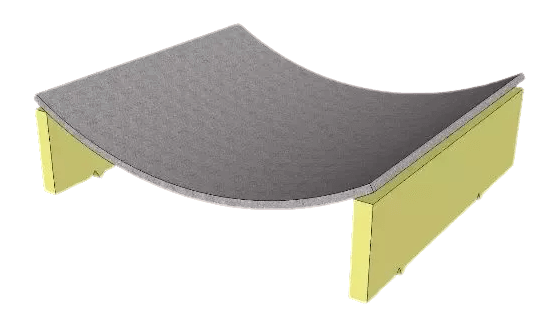
Also, Read – What is Concrete Cover? – Clear Cover, Nominal Cover and effective Cover.
What is Two-way Slab?
The rectangular slabs supported on two adjacent, three or four edges, and with the ratio of longer to shorter span less than two, which carry the load by flexure in two perpendicular directions are called two-way slabs.
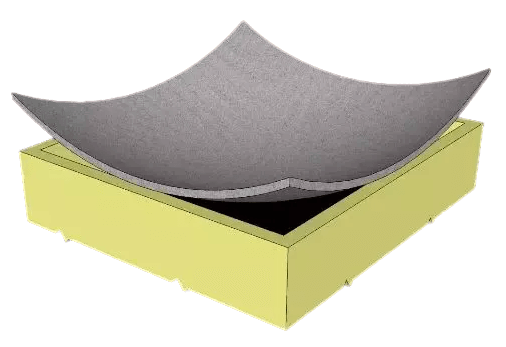
The slabs which are supported directly on the column without beams or girders are called flat slabs.
In this type of slabs, large moments and shear forces are produced in the columns’ vicinity. Therefore, the slabs are thickened in the area enclosing the column.
The columns are flared at the top to reduce stress due to shear force and negative bending moment. These arrangments are referred to as drop panels and column heads, respectively.
When the spans of the slab are not large and loads are not excessive, both the panel drop and column head may be omitted.
Such a slab is called a flat plate. A flat slab with a recess formed(by removable and filler blocks) on the soffit so that it comprises a series of ribs in two directions called waffle slabs.
The slabs supported on a series of intersecting long grid beams is called slab grid.
How do we calculate a one way or two-way slab?
If the L/b ratio is greater than or equal to 2 then it is considered a one way slab.
(Longer span / Shorter span) L / b ≥ 2
If the L/b ratio is less than 2 then it is considered a two way slab.
(Longer span / Shorter span) L / b < 2
Also, Read – Bar Bending Schedule (BBS) – Importance, Advantages, Preparation
Difference Between One way Slab and Two way Slab
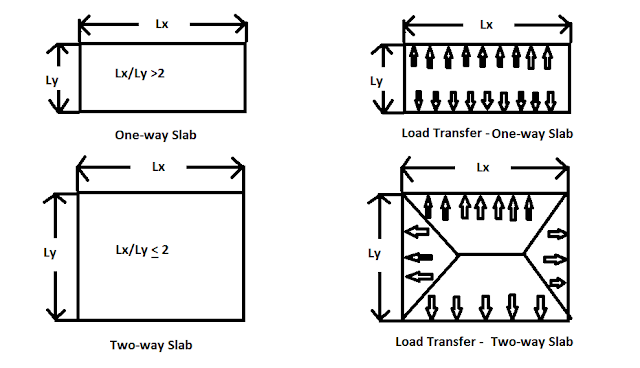
| S.No | One Way Slab | Two Way Slab |
|---|---|---|
| 1 | If L/b the ratio is greater than or equal to 2 then it is considered a one-way slab. | If L/b the ratio is less than 2 then it is considered a two-way slab. |
| 2 | In one way, slab bending moment occurs only in a shorter span direction. | While in two-way slab bending moment occurs in both directions that are shorter and longer span. |
| 3 | In a one-way slab, the main reinforcement is provided in a short span and distribution reinforcement is provided in a long span. | In a two-way slab, the main reinforcement is provided in both directions. |
| 4 | In a one-way slab, the crank is provided in two directions. | In a two-way slab, the crank is provided in four directions. |
| 5 | The one-way slab is supported by a beam on two opposite sides only. | The two-way slab is supported by the beam on all four sides. |
| 6 | In a one-way slab, the load is carried in one direction perpendicular to the supporting beam. | In a two-way slab, the load is carried in both directions. |
| 7 | In a one-way slab, bending is only in one direction i.e. in a shorter span. | In a two-way slab, bending is in both directions. |
| 8 | The deflected shape of the one-way slab is cylindrical. | Whereas the deflected shape of the two-way slab is a dish or saucer-like shape. |
| 9 | Chajja and Varandha are practical examples of one-way slab | Whereas two-way slabs are used in constructive floors of the Multistorey building. |
| 10 | While designing a one-way slab we provide less steel hence the depth of the slab increases, as a result, the thickness of the one-way slab is more as compared to the two-way slab. | While designing a two-way slab we provide more steel hence the depth of the slab decreases, as a result, the thickness of the two-way slab is less as compared to the one-way slab. |
| 11 | The one-way slab is economical up to a span of 3.6 meters. | Whereas the two-way slab is economical for the panel sizes up to 6m × 6m. |
| 12 | In one-way slab quantity of steel is less. | In a two-way slab quantity of steel is more as compared to the one-way slab. |
In practice, the choice of the one-way slab and two-way slab for a particular structure will largely depend upon the
- Economy
- Buildability
- Loading condition and
- length of the span
Also, Read – How to Calculate Cutting Length of Stirrups For Beam and Column?
One way Slab Reinforcement details
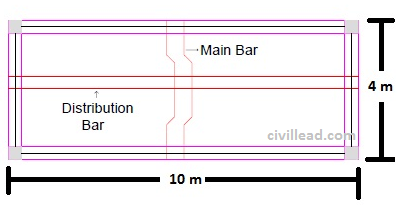
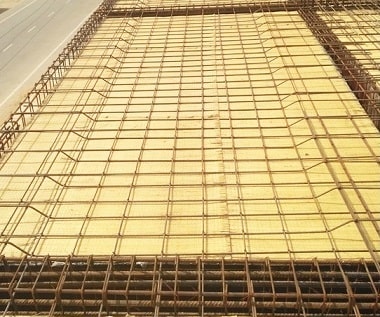
L/B = 10/4 = 2.5 ≥ 2
From the above drawing, it is clear that the L/B ratio is greater than 2, hence it is a one-way slab. So the main bar or cranked bars are provided in a shorter span and Distribution bars are provided in the longer span.
Two way Slab Reinforcement details
L/B = 6/6 = 1 < 2
From the below drawing, it is clear that the L/B ratio is less than 2, hence it is a two-way slab, that’s why main bars or cranked bars are provided at longer span as well as shorter span also.
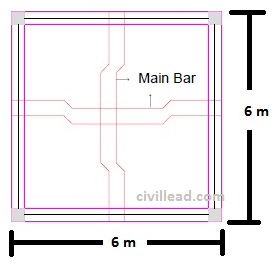
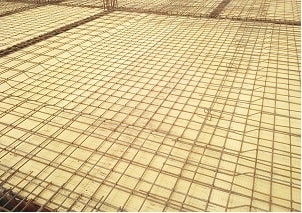
If you found this information helpful please share it with your friends.
Thanks! for visiting.
Also, Read
What is Development Length? – Complete Guide
What is Lap Length? How to Calculate it? – Complete Guide
Difference Between Plinth Level, Sill Level and Lintel Level
Pre-stressed Concrete – Definition, Methods, Advantages, Disadvantages
Difference Between Pre Tensioning and Post Tensioning
I am little confused.
Slab mean ? total of house slab or segment in between column.
Can roof of the floor is called a single slab
Or
A roof consist of multiple Slab ?
I am not an engineer , drawing for my house on 30×45 feets area. and confused due to one-way and two way slab destinations.
IF full roof is a slab and I have columns and beams in left and right and center then what kind of slab it will be for above mentioned area.
yes, slab means the total of the house slab but, we design it as the segment between the beams and columns according to the size of rooms ( one way or two way). Your house whole slab may be a combination of one way and two-way slab depend upon rooms size. The topmost slab is called the roof slab and the topmost slab of the building that is accessible to residents is called terrace slab.
It’s truly very difficult in this full of activity life to listen news on Television, so
I simply use web for that purpose, and get the most up-to-date news.
It’s nearly impossible to find experienced people about
this subject, however, you sound like you know what you’re talking about!
Thanks
Somebody necessarily assist to make severely posts I’d state.
This is the very first time I frequented your web page and so
far? I surprised with the analysis you made to make this particular submit incredible.
Excellent process!
I like the helpful information you provide in your articles.
I will bookmark your blog and check again here frequently.
I am quite certain I will learn lots of new stuff right
here! Best of luck for the next!
I’m very to be with you in this website, I want be the member of it